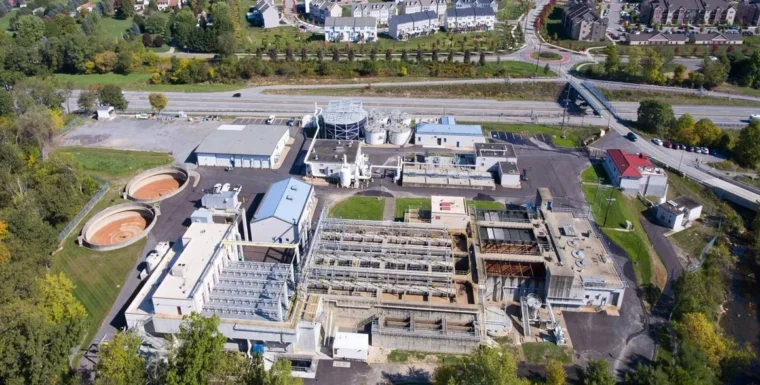
The state of Pennsylvania is investing $257.5 million to support 18 water infrastructure projects across the state. The projects will replace pipes, rehabilitate aging systems, upgrade service capabilities, extend service to additional communities and reduce environmental contaminants.
The funds come from the Pennsylvania Infrastructure Investment Authority (PENNVEST), which provides financial assistance for construction or improvements to drinking water, storm water or sewage treatment facilities. In addition, the authority supports non-point source pollution prevention best management practices, helps remediate brownfields and provides loans to homeowners to connect to a public sewer or repair/replace on-lot septic systems.
The PENNVEST Board of Directors approved the water infrastructure funding during its July 17 meeting, alongside its $1 billion Fiscal Year 2024-2025 budget. The Board will spend an additional $46 million compared with last year’s budget to remove lead and corrosive pipelines and address contaminants like per- and polyfluoroalkyl substances (PFAS).
Aqua Pennsylvania Inc., a water and wastewater utility company servicing 32 counties, received $77.5 million to replace aging water mains, dated from the late 1800s and early 1900s. The current water mains are at the end of their useful life and have histories of leaks, insufficient capacity, water quality issues, no redundancy and are in poor condition.
The projects will replace 21 water mains and build approximately 133,400 linear feet of water mains over the next three years. The company will install valves, hydrants, service lines, pressure regulating vaults and around 80 hydrants along the replacement mains.
The township of Cranberry will spend $36 million to improve and replace the Brush Creek Water Pollution Control Facility’s solids processing equipment. The completed project will provide treatment for the township’s recent plant hydraulic expansion project, new service area development and improve operational efficiency.
The project will build two anaerobic digesters, a digester control building, a post-digestion sludge storage tank and a solids processing building. The township will also install two centrifuges, two biogas boilers, a biogas flare and an odor control biofilter. Plans include demolishing the existing autothermal thermophilic aerobic digestion and belt filter presses and rehabilitating the auxiliary influent pump station.
The General Authority of the city of Franklin will use $22 million to support Phase 1 of the municipal sewer collection system infrastructure upgrade project. The city will rehabilitate and replace approximately 55,000 feet of the existing sanitary sewer collection system. Plans also include rehabilitating and replacing PVC gravity sewers, manholes, laterals and appurtenances. The city will install the replacement sanitary sewer next to the existing sewer, allowing the city to convert the current system to a storm sewer.
The Elizabeth Area Water Authority received $20 million to address aging water distribution infrastructure. The first four phases of the project replace existing cast iron water mains with ductile iron alternatives, while Phase 5 will prioritize reconnecting water services. The project will install 33,805 linear feet of pipes, 1,318 service replacements and reconnect 112 water services.
Other notable projects that received funding include:
The Pennsylvania American Water Company received $15.6 million for two separate projects. The utility company will use $10.4 million to extend approximately 35,000 linear feet of water lines to provide service to several communities and a school district. The remaining $5.1 million will go toward a separate water service extension project with approximately 15,250 linear feet of pipeline.
The Shinglehouse Borough received $15.5 million to update aging equipment that has reached the end of its useful life. The borough will demolish clarifiers, build a headworks building, rehabilitate tanks and replace pumps.
The Pittsburgh Water and Sewer Authority will use $15.2 million to replace 1,050 public and private lead service lines in high-priority neighborhoods.
The Winber Area Authority received $14.5 million to upgrade the Ingleside Sewage Treatment Plant. The project will build structures, a digestion system and replace outdated equipment.
The city of Philadelphia will use $10 million to remove and replace 950 lead and galvanized steel drinking water service lines with copper alternatives.
Photo courtesy of the Western Pennsylvania Water Pollution Control Association
The post Pennsylvania invests $258 million to improve water infrastructure appeared first on Government Market News.
